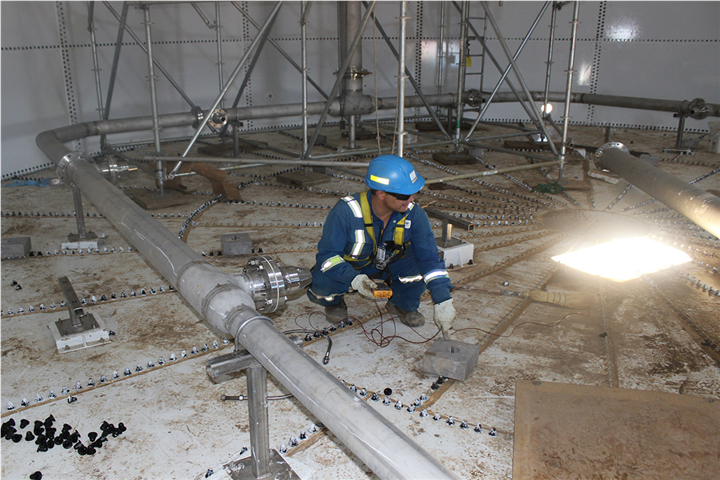Review of CP Fundamentals (CP1 Concepts)
- Recap of basic corrosion and CP principles
- Review of CP system types (galvanic and impressed current)
- Review of potential measurements and field instruments
Advanced CP Testing Techniques
- Instant-off potential measurements
- Current requirement testing (depolarization and polarization curves)
- Soil resistivity testing (2-pin, 3-pin, 4-pin methods)
- DCVG (Direct Current Voltage Gradient)
- ACVG (Alternating Current Voltage Gradient)
Troubleshooting and Diagnostics
- Recognizing and correcting measurement errors
- Testing for shorts, continuity, and isolation
- Analyzing abnormal potential readings
- Troubleshooting rectifiers and anodes
Stray Current and Interference Testing
- Sources of stray current (DC and AC)
- Impact on CP systems and structures
- Detection techniques
- Mitigation methods (drainage, bonding, isolation)
CP System Evaluation and Maintenance
- Performance assessment for galvanic and impressed current systems
- Monitoring and adjustment of rectifiers
- Anode life and performance
- Maintenance scheduling and documentation
Advanced CP Equipment and Instrumentation
- Use of data loggers, interrupters, clamp meters
- Reference electrode placement techniques
- Advanced multimeter and high impedance voltmeter applications
Isolation and Bonding Techniques
- Testing and installation of isolation devices
- Purpose and types of bonds (diode, resistor, solid-state)
- Measuring bond current and potential
CP Design Concepts (Introductory)
- CP design parameters (current density, coating efficiency)
- Anode selection and placement
- Understanding circuit resistance and voltage drops
- Overview of CP design tools and documentation
Safety in CP Field Work
- Electrical and arc flash hazards
- Field safety procedures and PPE
- Confined space and excavation awareness
- Safety around pipelines, tanks, and energized equipment
Hands-On Practical Training
- Complex field measurement simulations
- CP test station readings and analysis
- Troubleshooting CP system faults
- Use of interrupters and advanced instrumentation






comments (0)